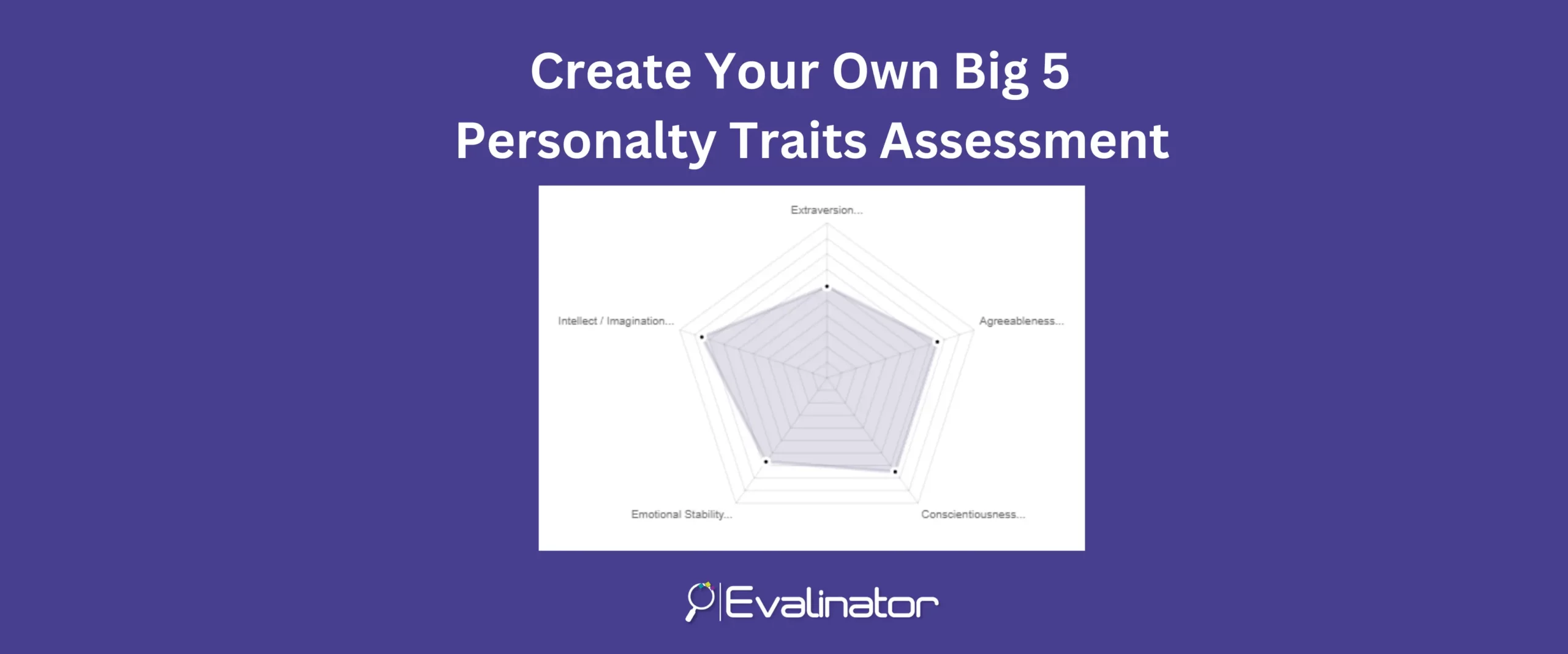


The Big 5 Personality traits assessment is the result of significant scientific research. It assesses your personality along 5 core factors:
Try out a short version of the Big 5 Test here (opens in a new window).
If you are a coach, the full Big 5 test is included as part of your Evalinator subscription. You can combine the Big 5 test with a DISC, Strengths Finder, or a Wheel of Life assessment to get a full picture of your client’s needs.
All of these assessments are included in your subscription. You can also combine these with custom assessments that are tailored specifically to your coaching practice.
They all come with goal-setting features, and can be hosted on your website to provide a white-labeled experience to your clients. They all also have demographic profile fields (age, gender etc.) and benchmarking to help you work with your clients in more detail.
Sign up here for a 14 day, no-risk trial.
These assessments can be used for onboarding or ongoing coaching. They make for an excellent coaching toolkit to help clients with their transformation journey.
This scientific Big 5 Personality assessment that you can create for your practice is based on 50 key factors identified by Dr. Lewis R Goldberg at the Oregon Research Institute. IPIP is in public domain.
High scores on conscientiousness indicate that you tend to be disciplined and detail-oriented. This implies that you tend to have less difficulty meeting the goals you set or completing tasks assigned to you.
High scores on agreeableness indicate that you come across as helpful and sensitive. As a result, you will tend to get along better with people because you will inspire trust.
High scores on extraversion indicate that you are generally outgoing and comfortable meeting and mingling with people. Low scores indicate that you tend to be more reserved.
High scores on openness to experience indicate that you are by nature curious and more adventurous. On the other hand, if you score low on this category, it would indicate that you may not prefer more familiar and set routines.
Low scores on Emotional Stability indicate that you are more likely to tend to feel anxious and moody. You may also be prone to having low self-confidence.
Read more about the Big 5 Model here on Simple Psychology, and here on the Penn State website.
Try the short version of the Big 5 test here (it’s free to take).
Create a full coaching toolkit by using a combination of the Big 5 Personality test, Wheel of Life, Strengths Finder, and DISC assessment for your practice. They all come with goal-setting and can be white-labeled on your own website. You can create a variety of custom assessments tailored to your practice.
Get started today with a 14 day, no-risk trial.
You will have an excellent toolkit on your hands without having to resort to paper and PDF printouts.
Launch Your Own Big 5 Assessment in 30 Minutes